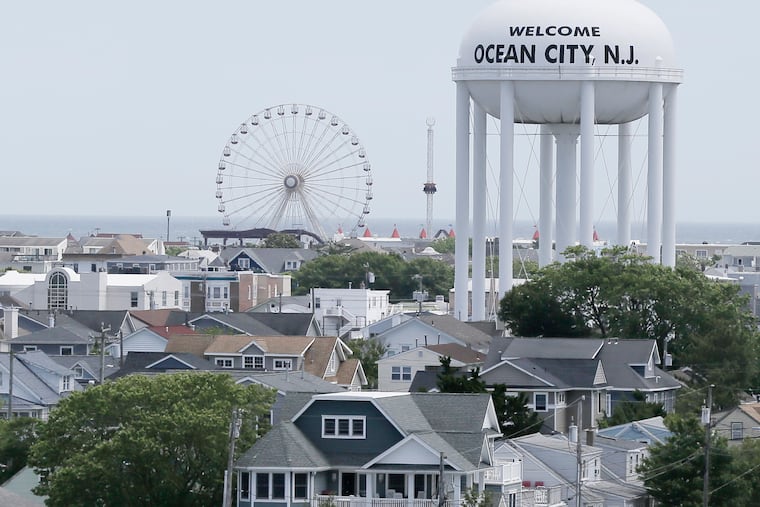New Jersey’s rental tax has changed. Here’s how to know if your Shore home will be taxed.
New Jersey's tax on short-term rentals was recently modified to help Shore homeowners. A guide to how the new exemptions work.

Less than a year after New Jersey started taxing short-term rentals, the state has made changes to the law.
The revision grew out of a push from Shore homeowners, who said the tax, which took effect in October, made it harder for them to rent out their homes this summer.
The tax, which adds 11.625% to the price of a rental — 6.625% in state sales tax and a 5% occupancy fee — was aimed at leveling the playing field between hotels and Airbnb and similar home-sharing platforms.
The revised law, which Gov. Phil Murphy signed last week, was an attempt to reduce the tax’s impact on Shore homeowners by exempting some types of rentals.
Now, whether a rental is taxed depends on how it is booked. Here’s a guide to understanding the tax law.
Which rentals are exempt from taxes?
The change that took effect last Friday exempts rentals from the tax if they are booked directly through the owner. Direct bookings include rentals that are advertised with the help of newspaper ads, signs, and word of mouth.
Some rentals advertised online may be exempt from the tax, too — as long as payment is not made through the website. Facebook and other websites could be used for advertising rentals and still be exempt from the tax.
Other local websites that specifically advertise Shore rentals should also be exempt if they do not process payments.
Duane Watlington, a founding member of the Shore Rentals Coalition, which pushed for a change in the tax, said he uses a website to advertise his home on Long Beach Island. The website does not process payments, so, he said, he could keep using it and be exempt from taxes under the new law.
“People have to be able to advertise their properties,” Watlington said.
The state’s Division of Taxation is still working on detailed guidance for the tax changes.
Which rentals are taxed?
Rentals booked through Airbnb are still subject to the tax. Similar booking websites, such as Vrbo, are also taxed; if a website arranges the rental and also processes payment, the rental is subject to taxation.
Rentals arranged through travel agencies are also taxable.
If an owner of a rental property owns and rents out three or more separate units in a given year, all of the rentals will be taxed regardless of how they are booked. The state defines those rentals as “professionally managed units” and requires their owners to collect taxes.
What if you book through a real estate agency?
Rentals booked through real estate brokers, as is the case for many Shore rentals, have been exempt from the tax since it took effect last year.
That exemption has drawn complaints from some Shore homeowners that it is an unfair carve-out for the real estate industry.
Will this lead to owners and renters turning away from Airbnb?
It it too soon to tell whether the changes will have an impact on home-sharing websites such as Airbnb and Vrbo.
Airbnb supported the bill that implemented the tax last year, and has supported efforts to tax its rentals in other states. The company opposed the change to the law this year.
The tweak to the tax essentially creates a loophole for direct rentals, making it possible for homeowners to advertise on Airbnb or Vrbo, then ask prospective renters to communicate outside the website to avoid the tax.
Despite complaints from homeowners that the tax hurt business, however, Airbnb is having its best summer ever at the Shore.
Airbnb expects to have 210,000 guest arrivals in the five counties that make up the Shore from Memorial Day through Labor Day this year, said spokesperson Liz DeBold Fusco.
DeBold Fusco said the company expects that its Shore hosts will make a total of $47.3 million this summer.